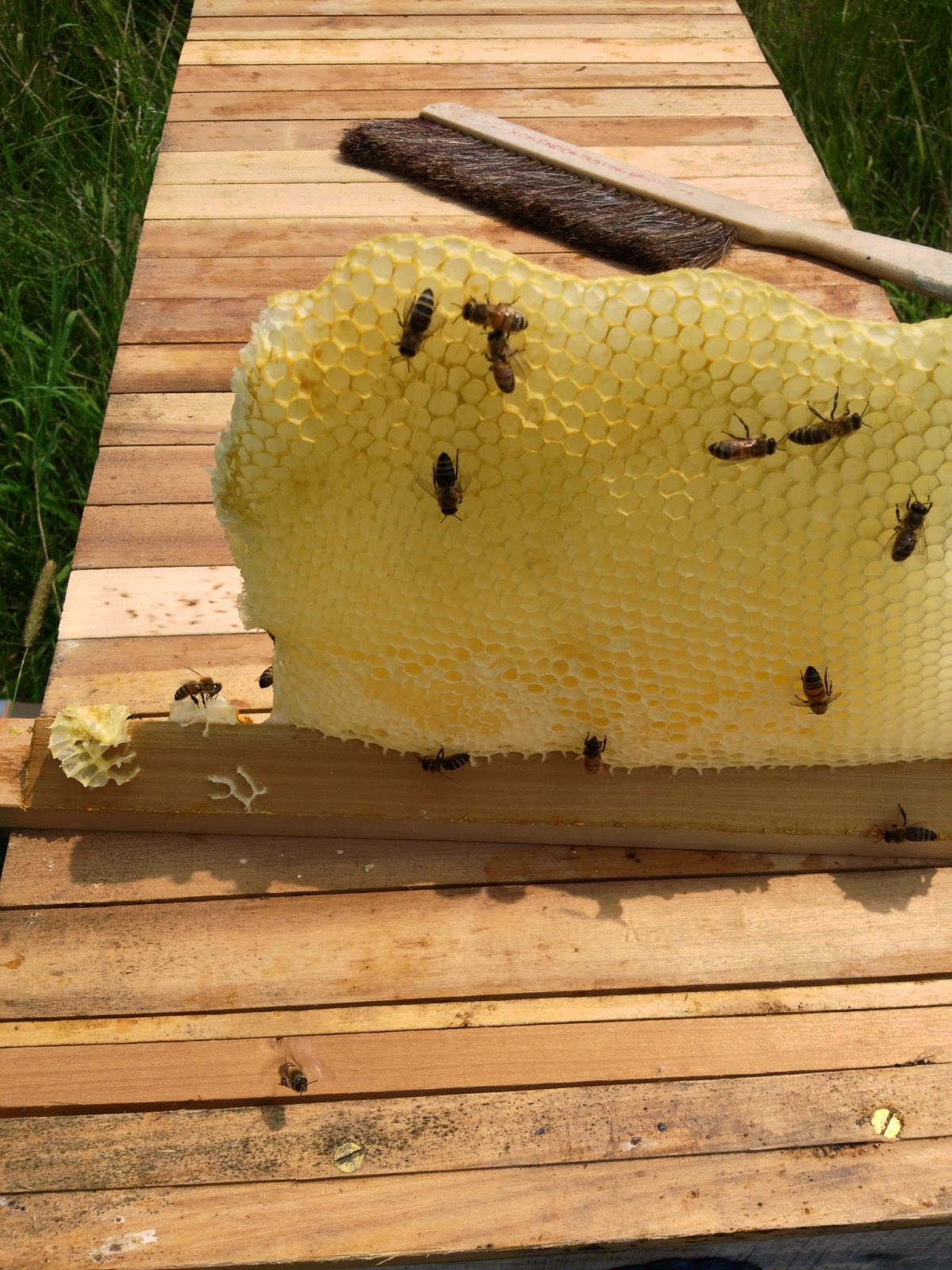 |
| Landing Board of Top-Bar Hive |
This year I decided to try my skills at hiving Carnolian honeybees. Carnolians are not as popular in the US with commercial beekeepers because of their reputation for swarming. Preventing swarms requires a lot of effort and input, which costs commercial beekeepers time and money.
I was primarily interested in keeping Carnolian bees for their mellow temperament and their genetic adaptation to cold. For beekeepers in the Great Lakes region, winter is rough. At least 1/2 of all hives won't make it through to spring. This is why most large-scale beekeepers truck their bees to warmer states during winter.
The first thing I noticed about my Carnolian bees is how productive they are. My top-bar hive was crowded to capacity by July first. I tried to keep ahead of them by removing comb but they swarmed in mid-July. A new queen immediately took over and the colony got back to business foraging and making honey.
 |
| Bee Smoker |
Because honeybees prefer a bit of open space in the front of their hive it's best to take out the first wax comb before it reaches full size. I rarely use my smoker (I'm impatient getting it to work) but this time I set my mind to it. I used dry needles from the nearby white pine trees and after nearly half an hour of fiddling around, the smoker produced a pale aromatic plume that quieted the bees while I disturbed their hive.
 |
| Removing the First Bar |
After removing the protective roof from the hive, comb bars are carefully lifted out. Here, the front comb is about 80% complete. Towards the top where it's attached to the bar there is honey, about 1/2 cup, which I kept for myself. Broken bits of comb are returned to the bees for them to recycle.
 |
| The Viewing Window |
The yellow blob shapes seen above are brace comb. As the wax comb is built to its maximum size and filled with brood and honey, it becomes quite heavy. Honeybees ingeniously engineer lateral brace comb to strengthen it, which prevents the comb from collapsing under its own weight. I use my old art school drafting brush to gently brush the bees aside as I work.
 |
| Beekeeper Selfie! |
My hood is hacked with Gorilla Tape because I stupidly ran it through the washing machine. Oops...that's why it's detachable.
 |
| Honey from My Bees |
Check out my short video to see and hear the wonderful movements and sounds that honeybees make while they work. My Bantam rooster, not to be upstaged, lets loose a mighty crow just after the :30 mark.
Shane VanOosterhout is The Passionate Gardener.
For more garden inspiration, you can follow him on Facebook.

No comments:
Post a Comment